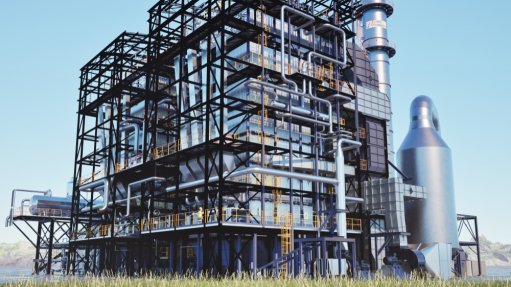Infrastructure overhaul could boost consumer expenses
South Africa is in dire need of infrastructure upgrades to better manage available water resources and ensure that water is distributed to where it is needed. However, to undertake the massive infrastructure overhaul needed, funds for capital investment will be required. As with electricity, consumers can be expected to pay for the product and services they receive, notes independent association Johannesburg Chamber of Commerce and Industry (JCCI).
“We should certainly expect the price of water to increase – whether this will be a massive one-off increase or a staged increase, such as in the case of the price of electricity, remains to be seen,” says JCCI president Ernest Mahlaule.
The organisation indicates that the reality is that the cost of water in South Africa is still reasonable when compared to other countries, and there needs to be more balance between the price of water and its scarcity levels.
Added to this, the Department of Water and Sanitation (DWS) has gazetted a draft of the revised water pricing strategy, one that outlines a theoretical framework that would produce a fully functioning water ecosystem for the country. However, for this to come to fruition, capital resources to invest in new and upgrade existing infrastructure will be required.
Mahlaule explains that, while there are tough days ahead and we can expect harsher restrictions, price increases and possibly even sanctions or fines for perpetrators in terms of restrictions, the current water crisis has also given rise to innovation adoption and new business and industry opportunities for entrepreneurs who are able to bring savvy water-saving solutions to the local market.
“South Africa is classified as a chronic water-stressed country, as the thirtieth-driest country in the world, which means that we will continue to need sustainable solutions to reduce consumption and recycle water resource. Water solutions companies arising out of the current water crisis would therefore be sustainable in the long term,” he notes.
Water solutions providers may innovate toward more cost-effective approaches for water conservation, purification and recycling. The JCCI also acknowledges that there are relatively expensive solutions available globally, such as desalination, or eutectic freeze crystallisation. However, Mahlaule notes that South Africa can certainly hope that local innovators move towards such solutions, as this would create an avenue to bring more solutions to the market that will, through increased competition, have a positive impact on pricing for consumers and business.
“The ability to desalinate sea water, for instance, could open a huge water resource that may address most of the country’s water scarcity challenges. Additionally, it would also create a new avenue to develop new technologies and grow local manufacturing, as well as, possibly, exports. In fact, there have already been talks about these kinds of innovations,” he says.
Moreover, Mahlaule explains that, without water, neither small businesses nor major global industries can function. “Certainly the mining, the car wash operations, manufacturing, energy production facilities and other like industries that use water as part of their processing will be hard hit by water scarcity should the current crisis intensify.”
The JCCI says, if the cost of water does increase significantly, businesses will suffer the consequences, as business tends to consume more water than an average household.
The organisation notes that it could have a “make-or-break” impact on a small business such as a car wash that relies on water to deliver its service. The impact will also be felt in the informal sector, where there are a number of small-scale farmers, for instance, who also rely heavily on water resources.
As a consequence, South Africa could see a number of businesses shutting down, which could have a knock-on effect in the broader economy, in general, adding to unemployment, in particular.
Whether a business closes down will depend on the nature of the business, and what support or aid structures government and business in general have implemented. Government needs to thoroughly consider all the socioeconomic knock-on effects of decisions such as increasing water prices.
Additionally, Mahlaule notes that special dispensations should always be made to accommodate the poorer sectors and the small, medium-sized and microenterprises by allowing for a free basic minimum allocation a day.
“The reality is that, while some business operations may be considered ‘wasteful’, there are a number of water recycling or more sustainably efficient processes that can be adopted, including alternative solutions such as steam cleaning technologies. This would, however, require upfront capital investment, which, in today’s economic climate, some businesses may find daunting,” he indicates.
Mahlaule points out that there are a number of initiatives and programmes run by the DWS and nongovernment organisations to increase awareness around responsible water consumption. The JCCI has also seen strict restrictions being imposed in a number of areas, particularly those areas that have been hardest hit by the current drought.
Article Enquiry
Email Article
Save Article
Feedback
To advertise email advertising@creamermedia.co.za or click here
Press Office
Announcements
What's On
Subscribe to improve your user experience...
Option 1 (equivalent of R125 a month):
Receive a weekly copy of Creamer Media's Engineering News & Mining Weekly magazine
(print copy for those in South Africa and e-magazine for those outside of South Africa)
Receive daily email newsletters
Access to full search results
Access archive of magazine back copies
Access to Projects in Progress
Access to ONE Research Report of your choice in PDF format
Option 2 (equivalent of R375 a month):
All benefits from Option 1
PLUS
Access to Creamer Media's Research Channel Africa for ALL Research Reports, in PDF format, on various industrial and mining sectors
including Electricity; Water; Energy Transition; Hydrogen; Roads, Rail and Ports; Coal; Gold; Platinum; Battery Metals; etc.
Already a subscriber?
Forgotten your password?
Receive weekly copy of Creamer Media's Engineering News & Mining Weekly magazine (print copy for those in South Africa and e-magazine for those outside of South Africa)
➕
Recieve daily email newsletters
➕
Access to full search results
➕
Access archive of magazine back copies
➕
Access to Projects in Progress
➕
Access to ONE Research Report of your choice in PDF format
RESEARCH CHANNEL AFRICA
R4500 (equivalent of R375 a month)
SUBSCRIBEAll benefits from Option 1
➕
Access to Creamer Media's Research Channel Africa for ALL Research Reports on various industrial and mining sectors, in PDF format, including on:
Electricity
➕
Water
➕
Energy Transition
➕
Hydrogen
➕
Roads, Rail and Ports
➕
Coal
➕
Gold
➕
Platinum
➕
Battery Metals
➕
etc.
Receive all benefits from Option 1 or Option 2 delivered to numerous people at your company
➕
Multiple User names and Passwords for simultaneous log-ins
➕
Intranet integration access to all in your organisation


















